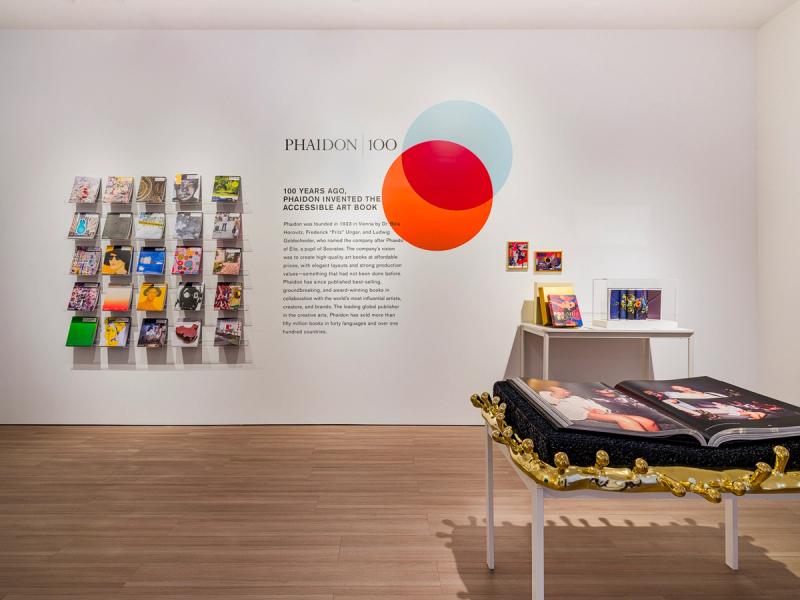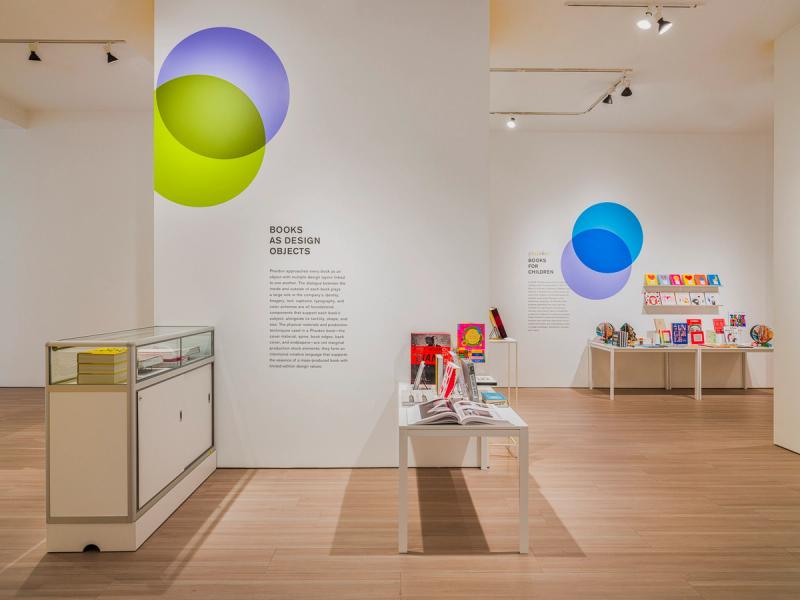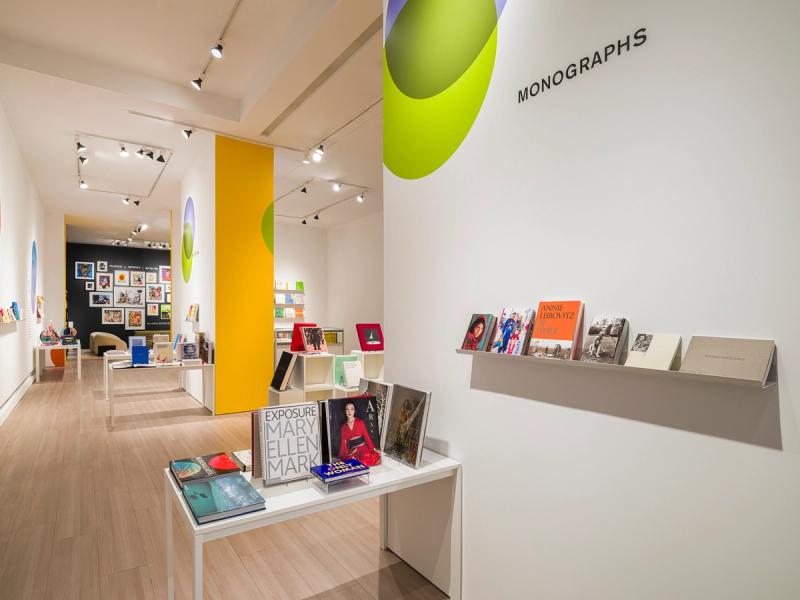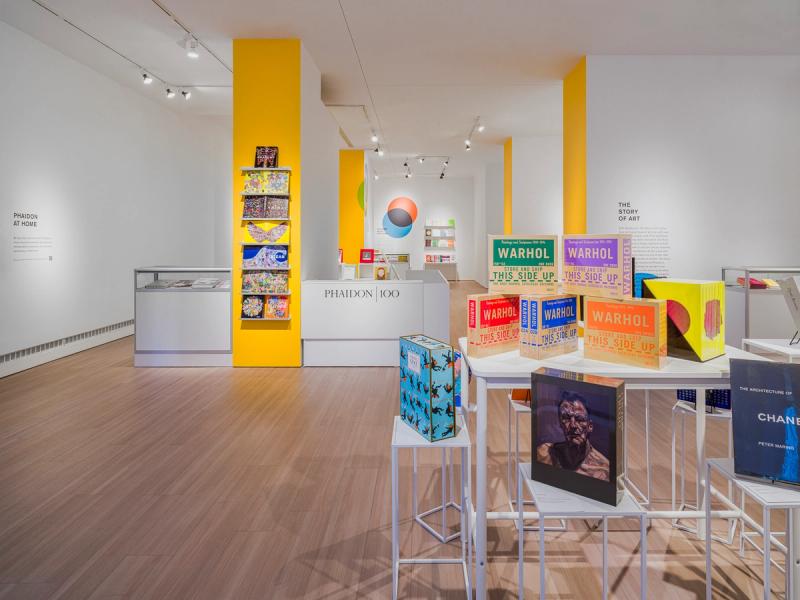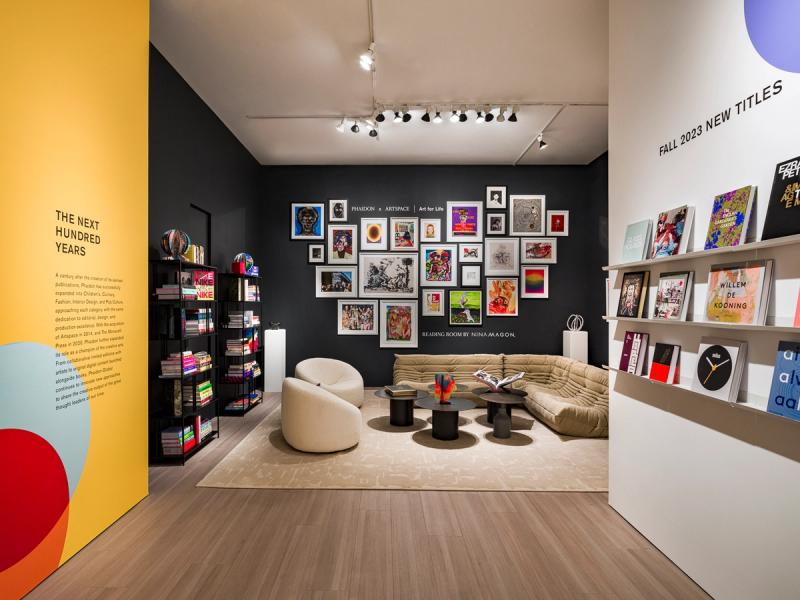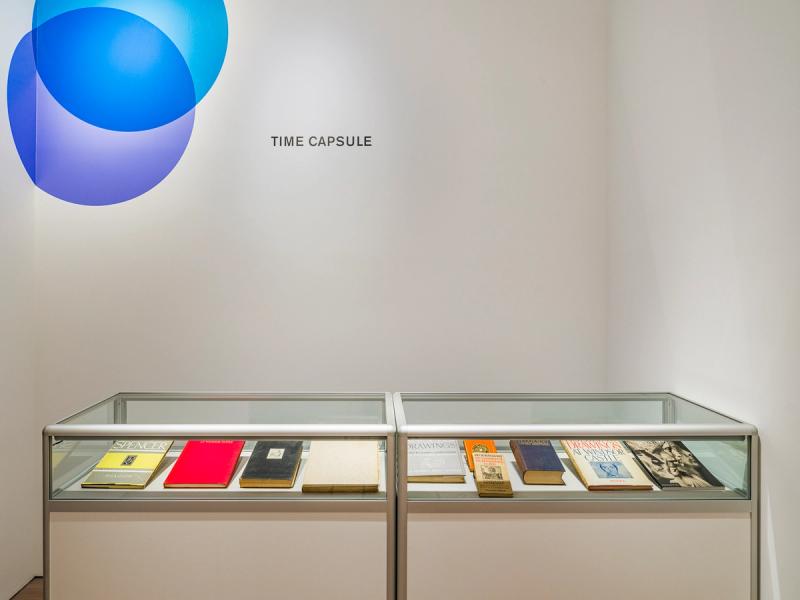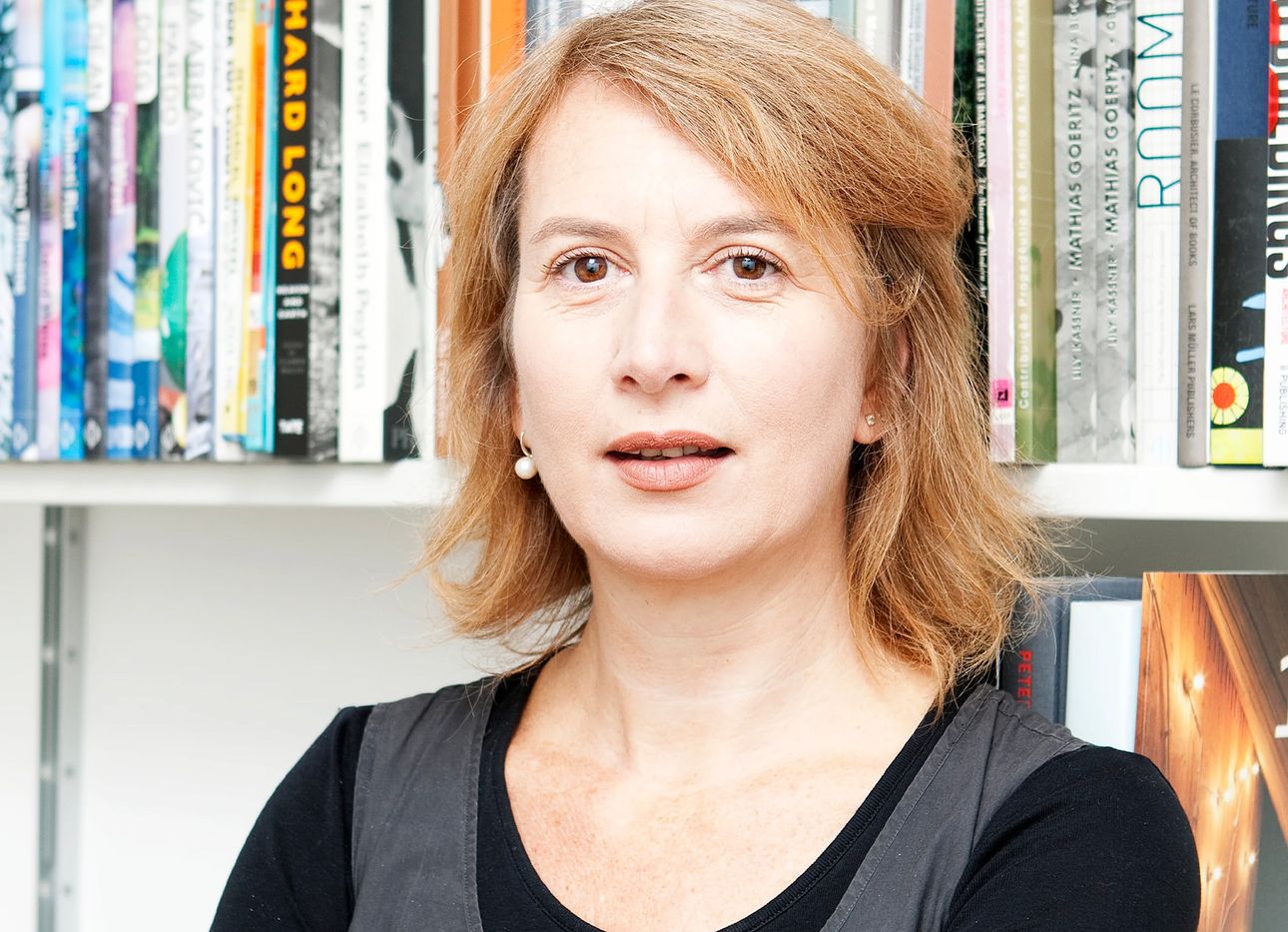
Phaidon’s Emilia Terragni on the Media That Satiates Her Roving Curiosity
Emilia Terragni has a palpable zest for books, food, and design—and for books about food and design. As associate publisher and editorial director of Phaidon’s titles on these subjects, she is a driving force behind the 100-year-old publishing house’s exquisitely crafted, visually striking publications.
Terragni’s fervor for visual culture was seeded during her upbringing in Como, Italy, as part of a family that prized the arts, and was intensified during her time in Venice, where she studied art history at Università Ca’ Foscari. “Studying in Venice definitely had a big impact on what I do,” she says. “It’s a place where there is a mix of ancient art with contemporary art, with the Venice Biennale and the Architecture Biennale.” From there, a sinuous journey in the design world—which wound from Venice to Germany to Switzerland—led her to Phaidon’s London office, where she has been for the past 22 years. Called the “queen of cookbooks” by the Wall Street Journal, Terragni has worked on books with the world’s best chefs, including Ferran Adrià, Massimo Bottura, and René Redzepi, as well as on architecture and design titles about everything from Nike and Herman Miller to Peter Marino’s buildings for Chanel.
This past September, to mark Phaidon’s centennial year, the publishing house held an exhibition at Christie’s New York, “100 Years of Creativity: A Century of Bookmaking at Phaidon,” which was subsequently on view at Christie’s London location last month, and it has also put together a 100th-anniversary collection of its books over the decades that are still in print. “We really went through our archive, selecting books from the 1920s, thirties, forties, [and] up to now, to show how the books that we publish always have something in common, even if they are a hundred years apart,” Terragni says.
Here, we speak with her about the content she consumes to feed her curiosity, which includes the interiors magazine Apartamento; the newsletter The Knowledge; the Instagram accounts of her authors, including Ronan Bouroullec, John Pawson, and Alice Rawsthorn; and many an episode of This American Life.
How do you start your mornings?
Coffee. I cannot function without it, and I actually think that has nothing to do with caffeine; it has to do with ritual. For me, it’s really a way to start the day. And it’s always followed by some kind of exercise. I cycle to the office, or if I don’t cycle, I either go for a run or do some yoga.
With the coffee, I always have the BBC Radio 4 Today program on at home before I leave. It’s a mix of news and interesting interviews, and it really sets the morning with being aware of what happened the day before or the night before, even. I tend to not look at social media in the morning; it’s something of a rule. I tend to leave social media for the evening.
Besides BBC Radio 4, where do you get your news?
Definitely the newspaper—sometimes physical, sometimes online—and also newsletters. I read The New Yorker newsletter, because it brings me back to when I was living in New York. It’s a way to keep the city close to my heart.
Do you read any Italian news?
I do, and then I regret it most of the time. [Laughter] I have a hate-love relationship with it. But I do go on the websites of Corriere della Sera or La Repubblica. I just read the titles, and then I usually get upset about it.
Do you read any other newsletters?
I read the Dezeen newsletter. It’s actually quite interesting to have an overview of what’s happening in the architecture and design world. There is also this other newsletter that’s called The Knowledge, that is an aggregation of news from different media that gives you a glimpse of what is happening and also how it’s being dealt with by different kinds of media.
What podcasts do you listen to?
One of my favorite podcasts at the moment is The Rest is Politics. It’s a podcast with Alastair Campbell and Rory Stewart—a Labour and a Tory—really discussing, in a very amicable way, what’s happening in the world. It’s very international, and I find it very interesting.
I listen to podcasts both when I run and when I take the bus to go to work when I’m not cycling. The first podcast that I was totally, completely hooked by was Serial—the first series, I couldn’t believe it. I also listen to This American Life. Again, it’s a mix of American stories and news and facts that I really, really like. There is also this other podcast that is called Talk Art. It’s interviews with artists. I really like the long interviews that you can really get deep into. I also listen to Spencer [on Time Sensitive]. I really love it because the episodes are each an hour long, and you can really get deeply into it.
I love This American Life, too. Is there a certain episode that stands out to you?
I actually remember why I got completely hooked on it. It was [an episode that came out] during the financial crisis in 2008, in which they practically explain, through the idea of a dollhouse, how the market of buying and selling property collapsed, and also the mortgage situation. It was incredible how they made it so simple.
There was another episode about this crazy Japanese TV show where you have to survive [by] buying vouchers and using vouchers to get food or anything. And this guy went practically, totally mad. It’s a mix of things that are factual about something that is happening at the moment—sometimes they are so surreal, but they are everyday stories. Ira Glass is really engaging.
Do you have any favorite magazines, whether digital or print?
Physically, I read Apartamento, The Gentlewoman, Pin-Up—I think that these are all magazines that, while they focus on a specific subject, being design, architecture, or fashion, they are able to talk about different things at the same time. They are magazines that are not only architecture, only design, only fashion; it’s really more about lifestyle and aesthetic.
Any favorite social media accounts?
I really like to follow my authors in particular. For example, Ronan Bouroullec. We actually have just published a book about his Instagram images. I think it’s a very interesting way of looking at Instagram, because Instagram is so ephemeral. We have made a selection of his images that are not not necessarily images of his work, but it’s how he sees his work. It is a completely different twist.
Same with John Pawson. I’m always amazed how good he is at looking. I find it very, very inspiring. The last one is Alice Rawsthorn. Every time she posts something, either I don’t know it, and I’m so happy to learn about it, or if I know it, I’m sure that it will add something to my knowledge.
Are you reading any books right now that you’re really enjoying? I know you’re constantly putting out books, but I wonder what you consume in that medium.
I read quite a lot. I tend to read either [during] my travels or over the weekend. If I find an author that I like, then I go back and try to find many more books [by them]. Recently, I read this book by this French author, Emmanuel Carrère, that actually was given to me for my birthday. The book’s called V13, and it’s about the trials of the terrorist of the Bataclan attack in Paris—a very lucid account of what happened at the trial.
Immediately after, I went back to another book that he wrote previously, about a serial killer—also a real story. At the beginning, I was a little bit upset about the entire thing. But then I went through and I thought it was really good.
I also just read Crossroads by Jonathan Franzen, who’s one of my favorites. It’s about a family in the seventies in rural America. [The father] is a pastor, and he has four kids. It’s the story of the development of the children and how they go a certain way. They also go against the family. It’s beautifully written. It’s about relationships, but within a family.
Do you have any favorite cookbooks, either that you’ve published or that you have in your own collection?
I love cookbooks. I use them a lot. I cook a lot—that is one of my favorite activities to [do to] relax. I like to discover new cuisines. I really like Middle Eastern cuisine, Lebanese, and all of that, so I like to use these books to familiarize [myself with them]. I also love [using] the newspaper to find recipes. Of course, I always use the books that I publish to be inspired to cook new recipes.
Is there a particular recipe that you’ve used recently that you really liked from one of your cookbooks?
Recently, I’ve done a series of meze from one of our books, The Levantine Vegetarian [coming out in spring 2024]. There was hummus, babaganoush, roasted cauliflower—so it was sort of Lebanese. That was perfect for entertaining.
What’s one book or other piece of media that you think everyone should consume?
I think that books are so personal. I would tell someone what a book did for me, but I would not expect that it will have exactly the same effect on someone else. I would be much more happy to hear that someone has found his own book that was really deeply and emotionally important [to him].
Any guilty pleasures?
I don’t know if it’s a really guilty pleasure, but for me, Sunday morning is: physical newspaper and breakfast in bed. I can’t do it online. I really need to have the paper—to open it and [read] all the different sections. Again, it’s a ritual, and it sets up the lazy Sunday morning.
Keeping it totally analog.
Totally analog. Actually, my dream—and in London for some strange reason, it’s not as easy—would be if someone could deliver the paper. I go out still sleepy, buy the paper, come back, and have it in bed.
